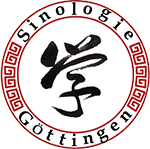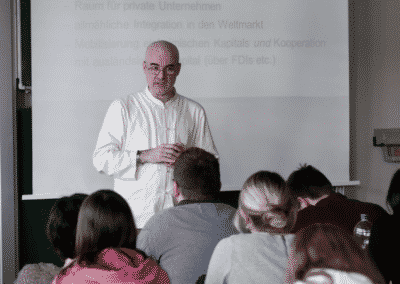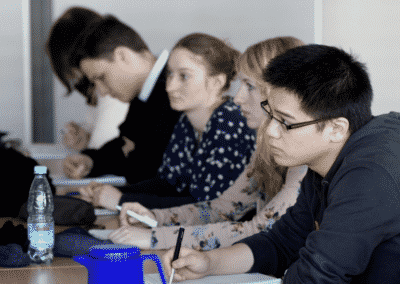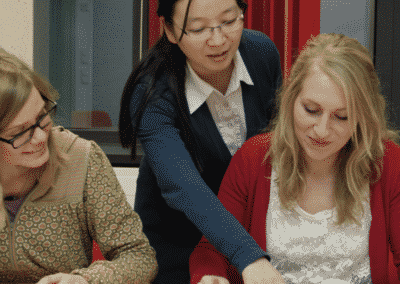MA Modern Sinology
The programme combines language and cultural skills relating to China with methods and theories from the humanities and social sciences. The aim is to hone skills for critical questioning and to develop research and analytical skills. Students are encouraged to formulate research questions independently and answer them using Chinese and English-language texts as primary and secondary sources. We provide the tools to analyse structures and processes in modern and contemporary China in a systematic, structured way, always adopting a global, comparative perspective.
The degree programme can be studied as specialist course for the Single Honours MA in Modern Sinology (78 credits) or as a specialist course for the Joint Honours MA in Modern Sinology (42 credits), in combination with subject-external module packages (one Minor of 36 or 2 with 18 credits).
Department content profile:
Professors and scientific staff specializing in:
• History and Philosophy of modern China
• Society and Economics of modern China
• Global History, focus on China
In addition, the module packages “Modern China” and “Chinese” are available, which can be taken as part of other Master’s degree programmes.

This graph shows the approximate distribution of the degree programme content.
General Information
- Degree: Master of Arts (M.A.)
- Standard period of study: 4 Semester
- Start of programme: Wintersemester
- Application: application procedure (application to the faculty of humanities)
- Admission requirements for Single and Joint Honours MA: Overview
Language of the programme
The language of the programme is English.
Programme Structure
In addition to the excellent intensive training in advanced spoken and written modern standard Chinese, transmission of the research oriented knowledge, as well as analytical skills are central to the Master’s programme:
- In seminars on the current state of research in the first semester, you will deal intensively with the latest findings of sinological research on various topics.
- In the second semester, you will focus on primary Chinese source texts in the case study seminars.
- You will receive training in the concrete application of cultural and social science methods and theories in the context of an independent research project in the second year.
- On this basis, you will write your Master’s thesis in the fourth semester, thereby successfully bringing your studies to an end.
The MA Modern Sinology/ Modern Chinese Studies offers you:
- Excellent and intensive training in both spoken and written modern Chinese Language teachers at the department are of high competence to teach Chinese language to non-native speakers from different language background. The proportion of teacher and students is strictly maintained to be around 1:10. From there, the language plays not only the role of being an essential tool for communication, but also as the media to penetrate into the Chinese culture. This leads to the essential occupational training in all fields for which exceptional knowledge of the language and culture of modern China is a prerequisite. This enables graduates to utilize their intercultural communication skills as such as analysts, consultants and Mediators.
- The opportunity to spend a semester abroad in a Chinese speaking area with our world-renowned partnering universities/ institutions.
- An interdisciplinary atmosphere, and an exceptional diversity of research and teaching emphases. Our courses cover such diverse fields as the history, philosophy, religion, politics, society, economy and judicial system of modern China. Students have the option to further their knowledge in one particular field.
- An active research and teaching landscape, with a steady flow of international visiting professors, academic talks and conferences. Our students get the chance to debate academic research and theories from a wide variety of countries.
Why Göttingen?
Academic excellence:
Other Reasons:
Why the Department of East Asian Studies at Göttingen?
- It is one of the largest sinology department in Germany in terms of the number of faculty, teaching staff and students
- It provides an excellent network for scholars/ students of sinology/ Chinese studies to expand their knowledge through an exposure to a robust research environment. A broad range of research expertise is affiliated to the department. This includes research on Chinese history, religion, philosophy, law, sociology, literature, architecture, urban studies, economics, and etc.
- Excellent learning facilities: The university library at the Göttingen University is also the State library of the State of Lower-Saxony. It is home to one of the richest collection of social science and humanity titles in the country. In addition the library situated directly in the building of ‘Cultural Studies’ hosting the Department of East Asian Studies is the home to a rich collection of classical and contemporary literature as well as archives on the Chinese World.
- Excellent language training: Language teachers at the department are of high competence to teach Chinese language to non-native speakers from different language background. The proportion of teacher and students is strictly maintained to be around 1:10.
- The Department of East Asian Studies is working closely with several renowned international partners which provide exchange opportunities in excellent environment
Career Opportunities and Prospects
Our graduates qualify both for academic careers as well as any career that requires very good language skills and a high level of cultural competence. They therefore make excellent analysts, consultants and mediators in transcul- tural and global institutions, organizations and companies.
- Potential future areas of employment include:
- Research and teaching
- International organizations and foundations
- Cultural Exchange
- Journalism
- Consultancy work
- International research Management
- Information technology and Services
- International business enterprises
Admission Requirements
Conditions for admission
To apply for the MA Modern Sinology you will need Level 5 from HSK and at least 120 C in Sinology, including credits totaling at least 24 C from subjects on Modern China in at least two of the following areas: history, religion, politics, law, society or economy. You will also need 150 C from your BA degree (disregarding the grade) and sufficient knowledge of English, which needs to be demonstrated with different certificates.
Application
Applications have to be submitted via the online application portal.
Applications received by 31 March 2022 will be reviewed by 18 April
(Applications are reviewed throughout the year)
Information on the application process can be found here.
Information on the required documents can be found here.





